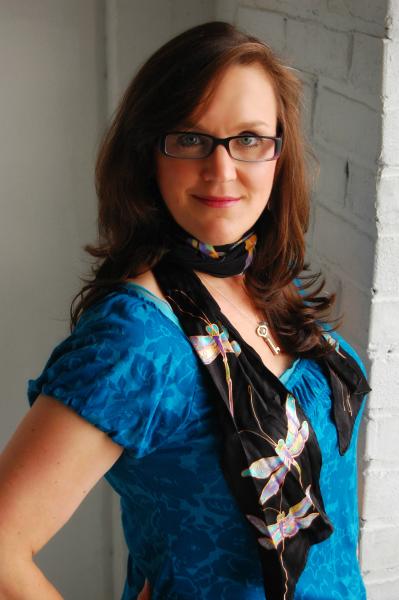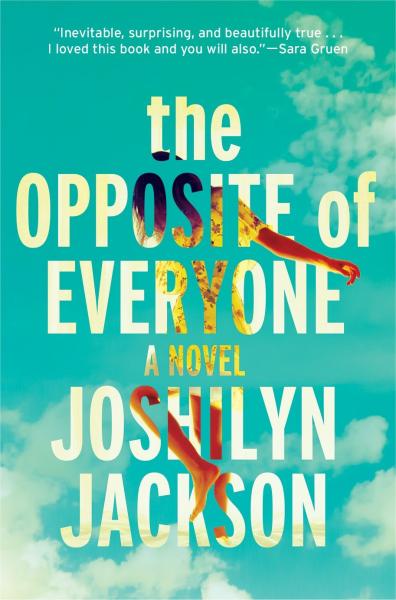- Categories:
Joshilyn Jackson on March’s #1 Indie Next List Pick, The Opposite of Everyone
 Joshilyn Jackson is the author of The Opposite of Everyone (William Morrow), the #1 Indie Next List pick for March.
Joshilyn Jackson is the author of The Opposite of Everyone (William Morrow), the #1 Indie Next List pick for March.
Jackson’s six previous novels have won her various awards, including the Southern Independent Booksellers Alliance’s Book of the Year award and two Georgia Author of the Year awards. Her books have appeared on the Indie Next List and its predecessor, the Book Sense Picks List, six times, including three times as independent booksellers’ number-one pick.
In a recent conversation with Bookselling This Week, Jackson credited indie booksellers for the success she’s had with her books over the years, starting with 2005’s Gods in Alabama (Warner Books). Sales of the novel were slow to start but picked up steam because of booksellers’ personal recommendations, she said. “The independent booksellers grew me a readership book by book, sale by sale, totally by hand. And here I am 10 years and seven books later and that would not be true if it weren’t for independent booksellers all over the country.
“The thing that makes me feel really happy and hopeful, not just for me but for writers in general, is this resurgence we’re having — the kickback against the impersonal Internet,” added Jackson. “The indies are really having a renaissance right now in a way that is making me feel hopeful for humanity.”
One of the “neatest things” Jackson has discovered throughout her career is that there are booksellers all across the country — from Vermont to California — who read her Southern fiction and share it with customers.
 Paula Vauss, the protagonist in The Opposite of Everyone, is a fiery Southern woman, a high-priced divorce lawyer with a successful practice in Atlanta. While writing the story of Paula, who first appeared in the 2013 novel Someone Else’s Love Story, Jackson feared that she, like Jane Austen once felt about the titular character in Emma, was creating “a heroine that no one but myself should like.”
Paula Vauss, the protagonist in The Opposite of Everyone, is a fiery Southern woman, a high-priced divorce lawyer with a successful practice in Atlanta. While writing the story of Paula, who first appeared in the 2013 novel Someone Else’s Love Story, Jackson feared that she, like Jane Austen once felt about the titular character in Emma, was creating “a heroine that no one but myself should like.”
Named at birth Kali Jai, after the Hindu goddess of hope, springtime, and destruction, Paula had an untraditional and nomadic upbringing. Her free-spirited mother, Kai, moved the small family from town to town and man to man, reinventing their story at each stop, until she went to jail and Paula to foster care. Now an adult, Paula is still coping with her fractured relationship with her mother, but she doesn’t appear damaged — instead, she’s impassioned, driven, and tough as nails.
“She says everything that she’s thinking, which, as a woman and especially as a Southern woman of a certain age, I’ve never done in my life,” said Jackson. “Even though she’s very into conflict and she steps toward trouble and is really aggressive, whenever she steps into a fight it’s always on the side of the underdog. She has a huge heart for justice. Even though she is vicious and addicted to winning, where she loves, she loves fiercely. I think of her as having a raisin for a heart, where it’s this small black thing but it’s also intensely sweet.”
Paula’s character took on an additional element of complexity when Jackson started learning about the various gods of Hindu mythology during a yoga class. “It began to be very clear to me how all the Kali stories especially resonated with who Paula was,” said Jackson, who ended up rewriting the novel to incorporate these Hindu gods. “Kali is the great destroyer, but she destroys to create. She’s terrifying, but also beloved. It’s Paula!”
Paula has no family members to turn to — her closest relationships are with her cat, Henry; her alcoholic ex-boyfriend, Birdwine; and her best friend, William, who is absent in favor of his new baby — when she learns about her estranged mother’s impending death.
“One of the things that I wanted was to remove Paula from any kind of tribe. I wanted her to be completely isolated on a number of levels so that she could operate as this singular force,” said Jackson.
Paula is further isolated because of her mysterious ethnic origin, which has left her cast out of every cultural group at several points in her life. “Race in America is such a hot-button issue and for Paula to be non-identified with anybody sets her outside of that — but it also repositions her as a vortex of it because no matter what the racial conflict is, she’s there in the center of it with no dog in the hunt. She doesn’t have a team to be on, which also means that every team is against her. I think it has a great deal to do with how she formed into the person that she is, that she didn’t have a tribe or a strong cultural identity,” said Jackson.
In The Opposite of Everyone, like in many of Jackson’s novels, the theme of family and the complicated love that goes with it is the force that drives the characters, particularly Paula, to action.
“I don’t think anything else matters. I don’t think anything else on this godforsaken wasteland of a planet matters than how we treat other human beings,” said Jackson. “I’m interested always in redemption. I’m interested always in grace. I’m interested always in the broken mechanics of identity, in terms of how we identify ourselves in our relationship with our parents and other people. I’m interested in the way that all the places that we’re broken shape us. I write books to kind of explain the world to myself.”
Jackson is currently putting the finishing touches on a new novel, Origin Stories, about a comic book artist who’s trying to write a sequel to a one-hit graphic novel that she wrote two decades prior.
“I tend to write almost in triplets, where I’ll write some pretty dark things and then I’ll want to write a comedy and kind of clean my mouth out with something sweeter. I’ll write a couple of books where I’m really going into some dark spots, and then I’ll feel the need to write something life affirming and hopeful,” said Jackson. “[Origin Stories] is my life-affirming, hopeful book, and it’s quite a relief to write it after two years with Paula.”

